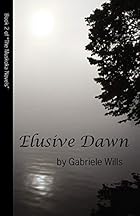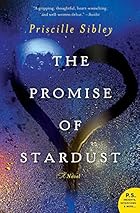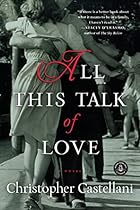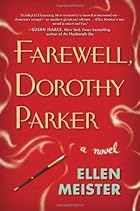 Mysteries, even cozy mysteries, generally have a murder in them and so I tend to avoid them, citing severe cowardice. But I do think it's good to read out of your comfort zone sometimes too so when a mystery comes along that doesn't in fact have blood spattered across its pages, I find myself getting excited about being able to branch out from the usual and dip a toe into a whole different part of the pool than I usually find myself in. Emyl Jenkins' second novel in the Sterling Glass pair of mysteries is one such mystery. No murder at all. Just my kind of mystery!
Mysteries, even cozy mysteries, generally have a murder in them and so I tend to avoid them, citing severe cowardice. But I do think it's good to read out of your comfort zone sometimes too so when a mystery comes along that doesn't in fact have blood spattered across its pages, I find myself getting excited about being able to branch out from the usual and dip a toe into a whole different part of the pool than I usually find myself in. Emyl Jenkins' second novel in the Sterling Glass pair of mysteries is one such mystery. No murder at all. Just my kind of mystery!
Sterling Glass is an antiques appraiser who has been called in to help ascertain whether an insurance claim for stolen and broken antiques from an unusual Virginia estate museum in rural Orange County, Virginia is legitimate. When Sterling arrives at the curious treasure-trove that is Wynderley, she finds that things are not going to be anywhere near as straightforward with the appraisal as she'd thought. The house, now a museum, was the home of Hoyt and Mazie Wyndfield. He was from old Virginia money and enjoyed traveling and the house is stuffed to the gills with acquisitions from their extensive globe-trotting. But even at first glance, Sterling can see that there are a goodly number of fakes freely intermingled with truly stunning antiques and the discrepancy intrigues her. She is also frustrated by her inability to do the job she was hired for because of a hovering curator who is strangely prickly and inexperienced and a museum board composed of locals who seem to want to draw her into their own squabbles and further their own unspoken agendas. The theft itself is also suspicious and seems to have been an inside job which remains unsolved.
As Sterling tries to do her job, she learns conflicting things about the Wyndfields, uncovers decades old secrets, discovers hidden rooms in the mansion, reads old and long forgotten diaries, exposes dodgy antiques provenances, and stumbles across possible fraud. Although the theft of the potentially priceless antiques seems to be the mystery around which the plot revolves, there is actually the bigger mystery of the Wyndfields themselves, their worldwide acquisitions, and the explanation for the anomalies found all throughout Wynderley. It is this latter mystery that interests and draws in Sterling. And it is this mystery that she finds herself investigating through interviews with the foundation board members, the curator, and a wealthy local woman who has the wherewithal to save Wynderley from the abyssmal mismanagement under which it has suffered for so many years now.
Definitely not a traditional entry into the mystery genre, the whodunit here is far less important than the history and the tale that the antiques tell. Each chapter opens with a newspaper advice column style entry in question and answer format about specific antiques which then play a part in the following chapter. The information contained in that brief blurb is fascinating and helps the lay person understand what sorts of things Sterling is looking for and at as she goes about her job of verifying the pieces at Wynderley. Sterling herself is an appealing character. She knows her profession (and Jenkins, an appraiser herself, clearly does as well) inside and out and she is curious, inquisitive, and intuitive in her investigations, a smart and professional woman of a certain age. The secondary characters are multi-faceted and interesting and they work well as an ensemble. The plot sometimes stalls a bit and there are tangents that don't add much to the story but overall this is a fun read that will appeal to fans of Antiques Roadshow and to those who want a gentle and unusual mystery.
Thanks to the publisher for sending me a copy of this book for review.








.jpg)

























